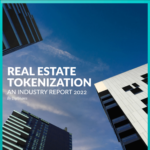For decades, real-world assets (RWAs) such as real estate, fine art, and private equity have been known for their illiquidity. Despite their immense value, these assets have remained accessible only to a select few, with ownership and transactions bound by high costs, lengthy settlement periods, and limited market participation. However, the advent of blockchain technology and tokenization has sparked a liquidity revolution, fundamentally altering how RWAs are accessed and traded. This transformative shift is democratizing financial markets and enabling unprecedented global participation.
Understanding Real-World Assets and Their Illiquidity Challenges
Real world asset liquidity encompass tangible and intangible items like property, artwork, infrastructure, and even private shares. These assets are often considered investments, yet they are plagued by illiquidity. Selling such assets typically involves lengthy processes, high transaction costs, and a lack of buyers at any given time.
Illiquidity not only limits the flexibility of asset owners but also restricts access for smaller investors. For instance, investing in high-value assets like commercial real estate is out of reach for many due to the significant capital required. Solving these challenges has long been a goal for financial innovators, and tokenization is proving to be a game-changer.
The Role of Blockchain and Tokenization in the Liquidity Revolution
Tokenization Explained
Tokenization involves converting an asset’s ownership rights into digital tokens that can be traded on blockchain platforms. These tokens represent fractional ownership, enabling investors to buy and sell portions of an asset rather than the whole. This innovation makes high-value assets accessible to a broader audience.
Blockchain’s Contribution
Blockchain technology ensures transparency, security, and efficiency in tokenized transactions. By leveraging decentralized ledgers, blockchain eliminates the need for intermediaries, reducing costs and settlement times. Smart contracts, self-executing agreements coded on the blockchain, further enhance trust and automation in transactions.
Benefits of Tokenizing RWAs
- Lower Entry Barriers: Investors can own fractions of high-value assets, making them more accessible.
- Global Market Participation: Tokenized assets can be traded 24/7, attracting a global pool of investors.
- Increased Market Efficiency: Tokenization reduces friction, making buying and selling RWAs faster and more cost-effective.
Key Players Driving the Liquidity Revolution
Platforms like DigiShares are at the forefront of the tokenization movement, offering robust solutions for asset owners to tokenize and manage their assets. For example, real estate projects have already seen significant benefits from tokenization, with property owners unlocking liquidity without selling their entire assets.
Collaborations between fintech companies, traditional financial institutions, and regulators are also fueling the adoption of tokenized RWAs. These partnerships are building ecosystems that integrate the strengths of conventional finance with blockchain’s disruptive potential.
The Impact on Investors and Asset Owners
Benefits for Investors
Retail investors now have the opportunity to diversify their portfolios by investing in tokenized assets. This accessibility allows them to participate in markets previously reserved for institutional investors or the ultra-wealthy. With tokenized assets, investors can enjoy liquidity, affordability, and global market exposure.
Advantages for Asset Owners
Asset owners can unlock liquidity without the need to sell entire holdings. For example, a real estate owner can tokenize a portion of a property and sell fractions to multiple investors while retaining control of the rest. This approach provides much-needed cash flow and preserves long-term value.
Regulatory and Security Considerations
While the potential of tokenized RWAs is immense, regulatory and security challenges remain. Complying with financial regulations is crucial to ensure market stability and investor protection. Fraud prevention and robust cybersecurity measures are equally important to maintain trust in tokenized ecosystems.
Fortunately, regulators worldwide are beginning to acknowledge the value of tokenization and are developing frameworks to support its growth. Clearer guidelines will encourage more asset owners and investors to embrace this innovation.
Challenges to Overcome
Despite its promise, the liquidity revolution faces hurdles:
- Technological Interoperability: Ensuring seamless integration between tokenization platforms and traditional financial systems.
- Education and Awareness: Informing investors and asset owners about the benefits and mechanisms of tokenization.
- Skepticism: Addressing concerns from traditional financial institutions about the disruptive nature of blockchain technology.
Overcoming these challenges will require collaboration across industries and a commitment to innovation.
The Future of Real-World Asset Liquidity
The tokenization of RWAs is poised to redefine global financial markets. As adoption grows, we can expect:
- Integration with Decentralized Finance (DeFi): Combining tokenized RWAs with DeFi platforms will unlock new use cases like lending, borrowing, and yield generation.
- Increased Market Participation: More retail investors and smaller institutions will enter markets previously dominated by large players.
- Redistribution of Wealth: By democratizing access to high-value assets, tokenization can contribute to reducing wealth inequality.
Conclusion
A Call to Action
The liquidity revolution is reshaping the future of finance, making real-world assets more accessible than ever. Tokenization, powered by blockchain technology, is breaking down barriers and unlocking opportunities for investors and asset owners alike. Businesses and individuals must explore the possibilities of this groundbreaking innovation to stay ahead in the rapidly evolving financial landscape.
Platforms like DigiShares are leading the charge, offering comprehensive solutions to tokenize and manage assets securely and efficiently. By embracing tokenization, we can all participate in a more inclusive and dynamic financial ecosystem.

